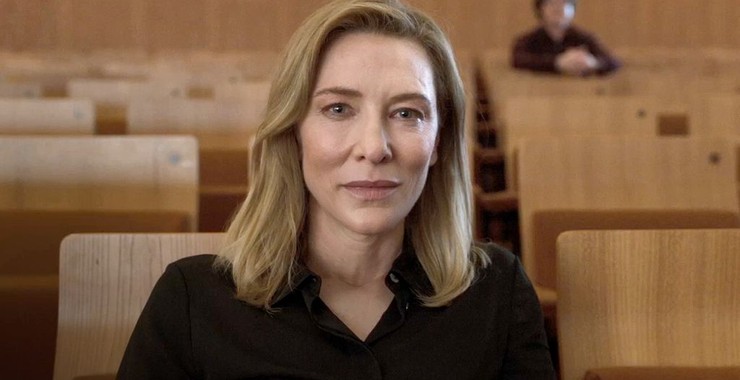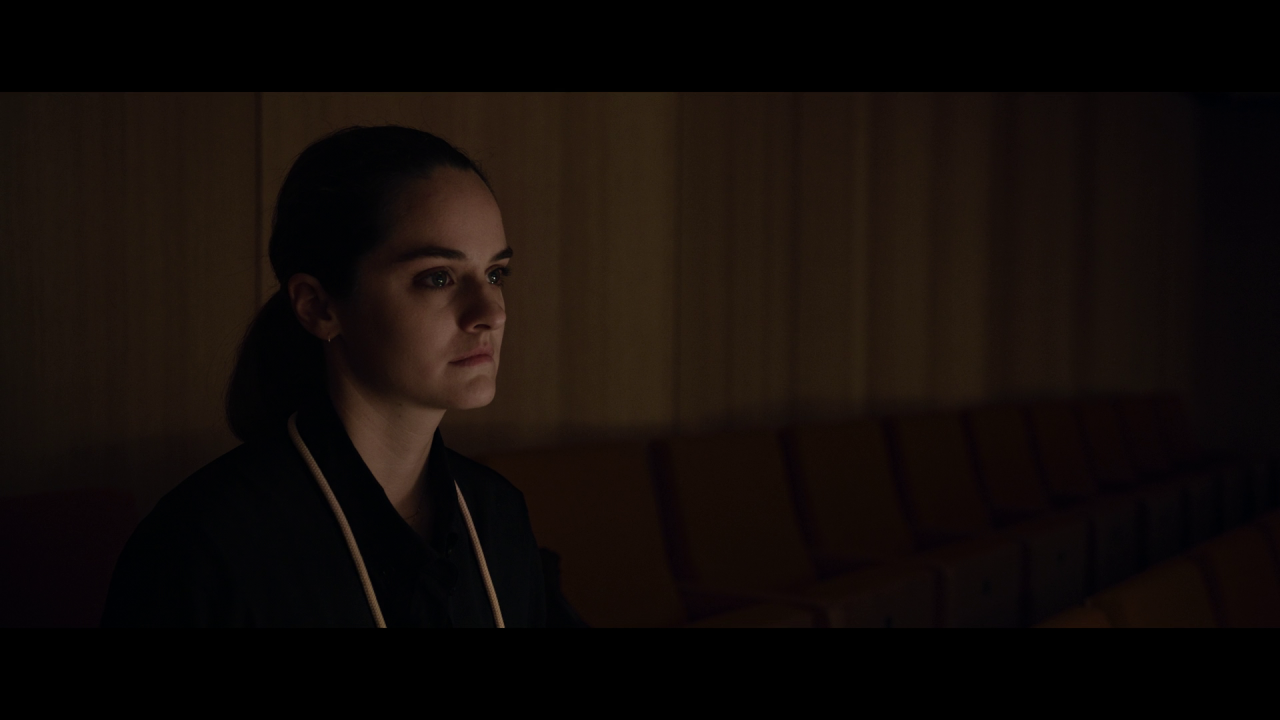A cinematic deep dive into a character who’s a genius, or very successful, or very devious – better yet, all three at once — is usually a successful journey. You know, someone like Daniel Plainview in There Will Be Blood, though you might replace “genius” with “sociopath” in that case. Absolute professional dominance corrupts absolutely, and it’s much more satisfying to watch this sort of person travel on a path toward comeuppance than to watch a movie about Mother Teresa. (Which may explain why there is not yet a great narrative film, or really any narrative film, about Mother Teresa.)
Todd Field’s Tar, the recent recipient of six Oscar nominations including best picture, best director and best actress for Cate Blanchett, belongs in the same conversation as There Will Be Blood on the level of craft – though figures to be a lot more divisive. In fact, you are currently reading a review that is not going to heap on the film nearly the same amount of overwhelming praise it has enjoyed since it was released last year elsewhere in the world.
As a return from a 16-year absence from directing for a man who originally made his name as an actor — Field previously directed 2001’s In The Bedroom and 2006’s Little Children — it’s a pretty astonishing achievement. As a purely satisfying viewing experience, its fate is somewhat in the hands of the beholder. Some will be thrilled by its elliptical nature and the amount it leaves up to viewers to work out for themselves. Others will scratch their heads and finish the movie with a mild frown.
No one should have difficulty appreciating the greatness of Cate, though. Blanchett plays Lydia Tár, who has changed her name from Linda Tarr and added the mysterious accent over the A. We don’t learn about her more modest beginnings until later in the movie, because great people try to create the narrative that they were born at their current regal level of sophistication. There’s no doubt that Lydia is great, or at least viewed that way by her peers, as she has become a world-renowned conductor on the verge of conducting her magnum opus. She’s at the absolute top of her game as she graces the covers of magazines and sits down for interviews in front of large crowds, expressing herself like a dream interview subject and further enhancing her aura of genius.
This composure is all on the surface. The worst kept secret among her colleagues, which is threatening to get out to the greater world, is that Lydia has a habit of sleeping with her female protégés, then professionally discarding them. This despite the fact that she’s married to a loving wife (Nina Hoss) and they have a lovely young daughter. The secret might have stayed buried, as many of them did prior to the exposure of Harvey Weinstein, except for the suicide of one discarded protégé, and the fact that other young women in her orbit – her current assistant (Noemie Merlant) and a new cello prodigy (Sophie Kauer) – decide to do something about it.
The broad strokes of Tar sound like something that could be a bit facile, or at least, too much of an attempt to join a populist trend to hold abusers accountable for their actions. That’s something done quite well in the film She Said, which may be a bigger success with a far simpler set of artistic ambitions. The reality of Tar, though, is not of a film that cares all that much about social justice, or if it does, it’s buried within the far more Kubrickian goals Field has in mind.
For much of its running time this is a puzzle box, including potential infiltrations of the supernatural – though in some scenes you might have to squint, or pause an eventual streaming version of the film, to see them. The basic story is not hard to follow, but it’s doled out in a sometimes minimalist fashion, relying on reading of emails or chat messages to get things another film would lay out on a platter. Every time Field compliments the intelligence of some of his audience he risks alienating another portion of it, and you definitely gets the sense he wouldn’t have it any other way.
This is not to place value judgments on which parts of Tar work best and for whom, nor to suggest an intellectually rigorous viewer is guaranteed to be rewarded by the film. Intelligent people clearly can disagree on whether story fragments and telling moments strewn throughout a narrative add up to something profound or just to something frustrating. For those who love Tar, the frustrations will probably resolve themselves in profundity.
No matter the ultimate conclusions drawn from what is inarguably a technical triumph, Blanchett’s work should stimulate all viewers. Lydia Tar’s genius has made her arrogant, leading her to mock and mishandle the university students she lectures, which becomes another problem she must deal with. You take a course from someone like Lydia Tar because you expect her to challenge and possibly even insult you, but the way Blanchett spins this mockery, it’s a serpentine history lesson combined with a performance combined with an artistic mission statement about what art is worthy and what isn’t. Lydia’s problem is that she’s gone head to head with this student at a time of viral videos and thin skins.
Lydia clearly represents the old model of the artistic genius, where the spoils of her greatness involve sampling whatever flesh she wants, and humiliating whomever she wants in either a personal or professional context. That no longer flies. The performance of Blanchett over the movie is like watching someone who was winning a boxing match start to bleed from the forehead and stagger with each new blow. Lydia’s only choice is to double down on the attitudes that got her here, and hope to talk circles around someone, to also talk herself out of trouble. When it’s clear she can’t, she unravels in compelling ways that Blanchett has tuned down to their finest points.
This doesn’t mean that Tar is a total success. Placing a woman in a typically male position of monstrosity is not a problem, even when the director is a man; if anything, it just reduces the chance for the film to be too on the nose in terms of its topicality, in which Field isn’t really interested. The problem, if there is one, arises from the pieces that are missing from the narrative – the necessity of which each viewer must decide for themselves. Certainly, there will be many viewers who find that nothing that should actually be there is missing from Tar, and that it challenges them like few other films.
Tar is currently playing in cinemas.



